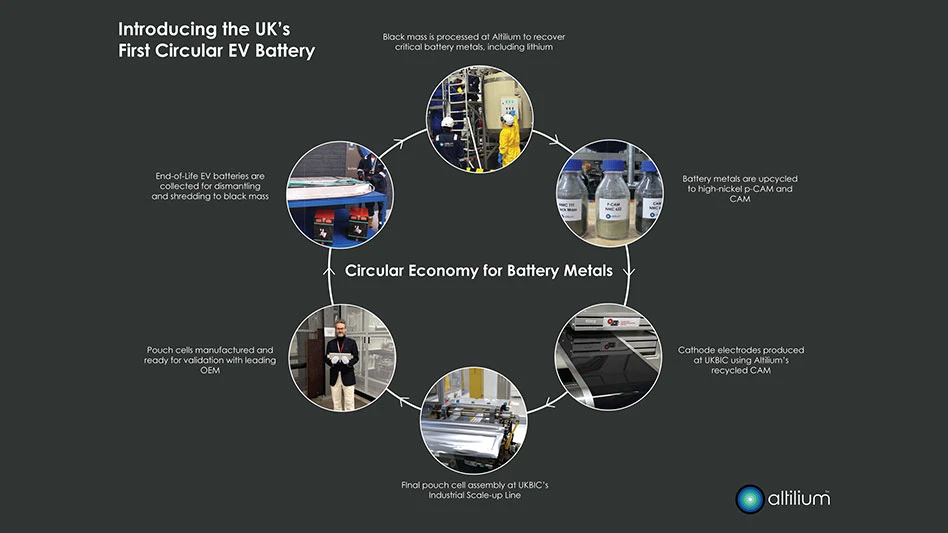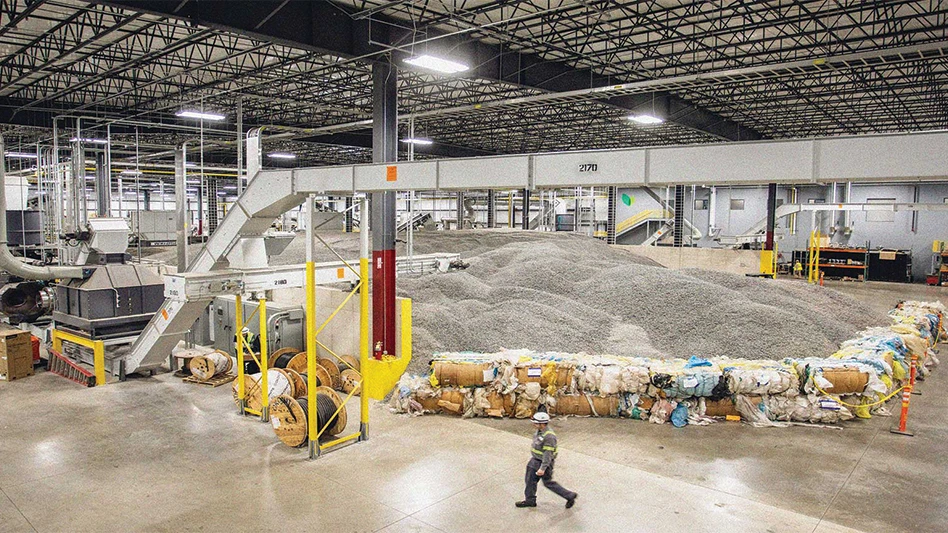Extended downtime" are two words a scrap yard manager never wants to hear. In the fast-paced scrap metal industry, time truly is money, and the bottom line is greatly affected by the productivity of machinery. If a yard’s shears, material handlers, balers, magnets or shredders are malfunctioning, the scrap yard cannot function efficiently, and, as a result, the yard loses profits.
One way scrap yard managers can avoid the aforementioned scenario involves placing a high priority on hiring quality technicians to ensure that their fleets of equipment are operating at maximum productivity. While some maintenance workers may learn and enhance their skills through on-the-job training, graduates of industrial maintenance programs at technical schools are being recruited by an increasing number of industries. Scrap recyclers might benefit by taking notice of these programs, too.
PROGRAM BASICS
Sources contacted for this feature are not widely aware of any graduates being placed in the scrap metal industry, but professors from industrial maintenance programs are confident their graduates can handle the equipment maintenance required in scrap yards.
"I’m sure with all the different types of equipment we work with—the heavy-duty equipment with the hydraulics—graduates would be equipped to work in a scrap yard," says Bob Bender, professor at Riverland Community College in Albert Lea, Minn. "The mechanical skills and preventive maintenance we teach would be critical because scrap recyclers can’t have machines breaking down."
The core curriculum for industrial maintenance programs is essentially the same for all colleges. Programs contain coursework in hydraulics, welding, pneumatics, fluid power, troubleshooting, preventive maintenance and programmable logic controllers (PLCs). Additional attention may be given to electronics, safety, disassembly, lubrication, gearing systems and blueprint reading.
Industrial maintenance programs contain both classroom and hands-on lab components. Students spend about 30 percent of their time in a lecture setting and about 70 percent doing lab activities, according to Ken Flowers, professor at Lake Michigan Community College, Benton Harbor, Mich.
Typically, these programs graduate 12 to 25 students per year with a two-year associate’s degree, though some colleges also offer certifications in more specified fields for individuals who may not need the full training.
"Let’s say a scrap metal company needs someone with good hydraulics and mechanical skills, but they’re really not concerned about electrical. We can gear our training for that," says Charles Moore, professor at Big Sandy Technical College in Pikesville, Ky.
Many technical colleges also offer some form of continuing education for professionals already in the industry who want to expand their skill sets. Usually these classes are offered at night to accommodate students’ schedules. Kentucky is making it even easier for maintenance workers to expand their skill sets.
The state is in the process of modularizing the curriculum for industrial maintenance continuing education programs, changing back to a task-based, competency-based curriculum.
Under this new self-paced program, students will be able to complete the lecture portion of their curriculum at home via the Internet. Then, Big Sandy and other technical colleges in the state will offer open labs where students can come as their schedules allow to work on their tasks at their own pace, Moore says.
"Once they complete a certain number of tasks with proficiency, they obtain credit for it," Moore says. "It gives them the opportunity to come to school at their own convenience. Some may finish the task in two weeks, some might take a month or two."
After students complete the required online lecture portion and have completed every task, they will receive their certifications or diplomas.
Given the accessibility and variety of industrial maintenance education programs at technical colleges, scrap yards may find them a suitable source for filling positions for maintenance technicians, either by hiring recent graduates or educating workers they already employ.
TECHNICIANS FOR HIRE
While the scrap metal industry has yet to fully tap into the talent pool provided by industrial maintenance graduates, businesses in other industries are certainly taking advantage, including some Fortune 500 companies. Whirlpool, a company that reported more than $19.4 billion in 2007 revenue, according to Fortune magazine, has placed apprentices at Lake Michigan College to educate the company’s maintenance technicians.
Additionally, Big Sandy tailored a special curriculum for industrial maintenance workers at a local Kellogg’s factory, a company that claimed more than $11.7 billion in 2007 revenue, according to Fortune magazine.
For large and small companies alike, the demand for industrial technicians appears to be sky high, particularly in the Minnesota area served by Riverland.
"We’re batting about 100 percent or pretty doggone close," says Bender of student job placement after graduation. "In the last few years we’ve been averaging five or six jobs per student to pick from. And that’s after not even really looking that hard."
Bender adds that the demand for industrial technicians may be increasing even more in the coming years. "I have companies now, with the baby boomers retiring within the next five years, that are looking at losing 30 percent of their workforce in the maintenance area. So they’re going to be hurting," he says.
The rising demand for industrial technicians coupled with the thriving scrap metal industry may appear to be cause for concern for operations managers seeking to minimize downtime. However, scrap recyclers can help ensure the availability of industrial technicians by setting up apprenticeship programs or co-ops with industrial maintenance programs.
One of the most common reasons professors give for why the scrap industry has yet to fully embrace their industrial maintenance programs is that class times often conflict with operating business hours for scrap yards.
Fortunately, technical school professors say there is a solution.
By setting up an apprenticeship or co-op, industrial maintenance students can gain valuable experience learning from other technicians at the scrap yard while also attaining the classroom tutelage needed to succeed in the industry. Nearly all colleges indicated their willingness to work with companies to set up apprenticeships or co-ops where students can work at their future place of employment while also taking classes.
"We’ve had students that say ‘I need to work these days’ and they may not take the full-blown program," Bender says. "They might come in two or three days a week and then they’re into the third year instead of a two-year program. Do what works for you. We try to help companies out as much as possible."
According to the technical colleges, setting up an industrial maintenance apprenticeship or co-op program is as easy as contacting the head of the school’s program. Most schools will then meet with the company, address its specific needs and create a curriculum best suited for its operations. Some even provide apprenticeship program options that have worked well for other companies.
"We have sample apprenticeships they can look at and see what other companies are doing across the state," Flowers says.
Even if scrap recyclers are not in a position to enter into a co-op or apprenticeship, there are plenty of ways to get involved with the recruitment of local college graduates.
"We have online job boards where companies can place job openings for students to view. Additionally, they can come in and make classroom presentations to our students," says Steve Arocha, professor at Texas State Technical College in Waco, Texas.
Whether setting up apprenticeships, recruiting recent graduates or expanding education for current employees, the opportunities to capitalize on the resources offered by technical colleges are broad. And given that there are at least 205 technical colleges throughout the country that offer industrial maintenance programs, according to CollegeBoard.com, scrap recyclers may have an ideal way to reduce machine downtime at their yards.
The author is an intern with the Recycling Today Media Group.

Explore the October 2008 Issue
Check out more from this issue and find your next story to read.
Latest from Recycling Today
- Returpack reports increased DRS activity in Sweden
- Trade groups align against European export restrictions
- Construction, auto sectors show mixed signals
- Politics in Turkey threaten recycled steel outlet
- Toppoint Holdings expands chassis fleet
- Lego creates miniature tire recycling market
- Lux Research webinar examines chemical recycling timetables
- Plastics producer tracks pulse of wire recycling market





